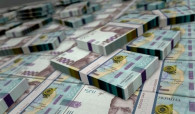Will Freedom and Change agreement bring Sudan back to democratic transition?
Will Freedom and Change agreement bring Sudan back to democratic transition?
There have been many local and international initiatives aimed at restoring civilian rule and completing the democratic transition in Sudan. Perhaps the most important is the draft transitional constitution, which was prepared by the Steering Committee of the Sudanese Bar Association in September 2022. The tripartite mechanism (UNITAMS, IGAD, and the AU) consider it a way out of the Sudanese crisis. The draft constitution also found international support expressed in a joint statement by France, Germany, Italy, the Netherlands, Norway, Spain, Sweden, Switzerland, the United Kingdom, the United States, Canada, Japan, South Korea, and the European Union. The draft announced the cancellation of the Transitional Constitutional Document of 2019 and the amendment of 2020, but considered the Juba Peace Agreement (JPA) an integral part of its provisions.
The political forces that approved the proposed draft constitution in a signed political declaration include the Forces of Freedom and Change - Central Council (FFC- CC), the Umma Party, the Original Democratic Unionist Party (DUP), and the People's Congress. On December 5, 2022, the Framework Agreement (FA), which is considered an extension of the draft constitution, was signed between the civil and military forces. The list of signatories included the same organizations that signed the political declaration in addition to others. It was signed by the military component, the Revolutionary Front - Al-Hadi Idris faction, the Sudan Liberation Forces Alliance, and a number of trade unions and bodies. The FA stated that among the tasks of the transitional phase is the implementation and evaluation of the Juba Peace Agreement (JPA), negotiating and reaching final peace agreements with the Sudan People's Liberation Movement (SPLM) - al-Hilu based on the March 2021 Declaration of Principles, and negotiating with the Sudan Liberation Movement (SLM) - Abdul Wahid and the rest of the non-signatory struggle movements.
The Forces of Freedom and Change - National Charter (FFC-NC) refused to sign the FA and began to expand its alliance, which resulted in the establishment of the Forces of Freedom and Change - Democratic Bloc (FFC-DB) after it was joined by political parties, armed movements, and leaders of the native administration. The new alliance chose Jaafar al-Mirghani (Original DUP) as president, Gibril Ibrahim (Justice and Equality Movement) as vice-president, Minni Minawi (SLM- MM) as head of the Political Committee, and Haider al-Safi (Republican Party) as rapporteur of the presidential body.
Both the FFC - CC & DB worked to expand their participation base and engage in workshops and arrangements for their priorities for the next stage. The FA group divided its agenda into five workshops in what was called the final stage of the political process, which included transitional justice, security sector reform, dismantling committee, the JPA, the economy, and the East. Meanwhile, FFC-DB held meetings in Cairo in early February 2023 at the invitation of the Egyptian government for what it calls the Sudanese-Sudanese Dialogue.
On February 9, the Quartet mechanism (USA, Britain, UAE, and Saudi Arabia) presented an initiative to hold a meeting between the signatories to the FA with the non-signatories. The meeting included Abdel Fattah al-Burhan (Chairman of the Sovereignty Council) and Mohamed Hamdan Dagalo Hemedti (Deputy Chairman of the Sovereignty Council). The three representatives of the FA group are Al-Hadi Idris (head of the Sudan Revolutionary Front), Al-Wathiq Al-Barir (National Umma Party) and Taha Othman (FFC-CC), while the three representatives of the parties refusing to sign were Minni Minawi, Gibril Ibrahim, and Jaafar al-Mirghani.
The Freedom and Change Coalition will not be the same again. However, the new political declaration can bring together today's allies once again, so that yesterday's enemies can become allies again in a new arrangement for sharing power. This is the only solution to the political suffocation that has stalled the democratic transition in Sudan since the December 2018 revolution.







